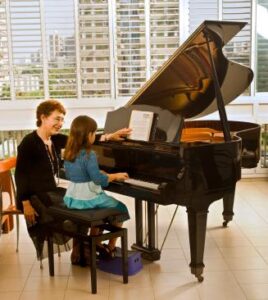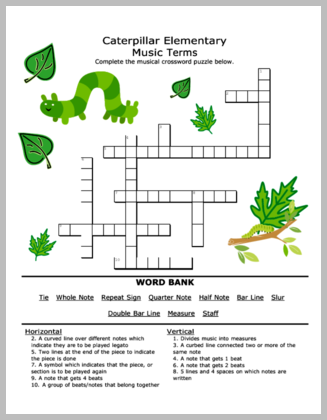
Give Students Grace
“How many children have…had their own failures blamed on ‘You were not cut out to be a musician.’ or ‘Johnny just has no musical talent,’ as though it takes talent to understand how to match lines and spaces on the keyboard; as though it takes talent to count a quarter note ‘1’ and a half-note ‘1-2;’ as though it takes talent to play some notes loudly and others softly!” — Martha Baker-Jordan (Practical Piano Pedagogy)
There is such elitism in the arts. An absolutely toxic attitude is pervasive across the arts that there are those “with talent” and those with “no talent.” And only the special who have been bestowed with talent can endeavor to enjoy or participate in the artistic world.
And it's total crap!
The thing is…you can’t predict how a student will grow, change, advance over the course of their lives. What may SEEM as an impossibility at 7 or 10 or even 20, does NOT mean it is impossible forever. Every person grows at their own pace. Each student reaches their potential at different times in their lives. And everyone is dealing with something. Almost no human (if any) gets through life without trauma or tragedy or hardships. And you can not judge a person based on where they are now, for all time in the future.
So please give your students some grace!
Teach them the very best way that you can. Teach them as the student needs. Every student is different. Figure out the best way to help each student on their own level. And do not worry about timelines.
I can hear it now — well, some students will never make it to their lofty goals. Shouldn’t they be told they can’t make it?
NO! They should be told what it takes to make those goals. They should be given every possible opportunity to reach those goals. And they should be nurtured along the way. And then let each student navigate the journey on their own terms. If the student know what it takes, they will also know whether they are “making it” or not.
If your students claims to want to be a concert pianist then you tell the student what it takes to reach that goal. Lay it out for the student, in realistic terms:
- You need x-quality of practice each day (not time, but quality).
- You need this ultimate level of technique skills
- You need this level of music theory skills
- You need this level of music ear skills
- You need this level of pieces you are able to play
- You need to be able to learn a new piece in x-amount of time
- You need to participate in these competitions
- ETC
And then you provide them with the best musical education, at their level to support them on that path.
It is also valuable to let students know that to play the highest level of piano it does not require them to become concert pianists. It’s always valuable to let students know that they can learn to play for their own joy, and that is okay too. Joy and ability does not have to have a job-title attached to it.
Sometimes students just need to know their options
Do they really want piano performance to be their job, or do they simply want opportunities to perform? Do they want to be paid for performing, or do they want to be able to play high-level pieces? Do they want the idea of “fame” in the piano world, or do they want to reach their highest potential?
Those questions matter!
And sometimes students don’t understand the difference. Sometimes students think that to play the highest-levels of piano repertoire they must be a concert pianist, or go to an elite college/university/conservatory. And that’s not correct. Playing for joy is a perfectly valid reason to reach the highest levels of performance skills! Yes, it is!
And students should not be limited by their teachers!
Educate students without critical judgement. Give them loads of information and opportunities and support. Please do not diminish them as they are learning. You can stunt their growth and cause them psychological trauma.
Maybe a student will not become a concert pianist, even if they want to be, but they can still continue to learn their entire lives, and reach high skill levels and confidence along the way…if they are supported properly.
And who knows. Since everyone’s journey looks different, maybe they end up a concert pianist later on, after all. You never know!
Bottom line -- be kind!
Kindness goes a long way. And a student will always remember kindness, or pain. Wouldn’t you rather they remember you, as their teacher, for the love, fun and education you provided?
It is likely you’ve encountered both positive and negative experiences with teachers of your own — and you remember both. Be the teacher that is remembered positively!
How can you do this?
“A good teacher must believe that all normal children are capable of learning, and that teaching includes a never-ending journey of discovery to find out what enables children to be successful learners. Furthermore, the teacher must maintain an awareness that students will not be able to practice what they do not know, ie., what they have not been taught. For example, students must never go home from a lesson with assignments they don’t understand. Assignments should be taught well enough that students can reproduce them accurately at home. Thus, the true meaning of teaching is to insure that students learn not only the content of the lesson but also how to practice it on their own.” — Martha Baker-Jordan (Practical Piano Pedagogy)
